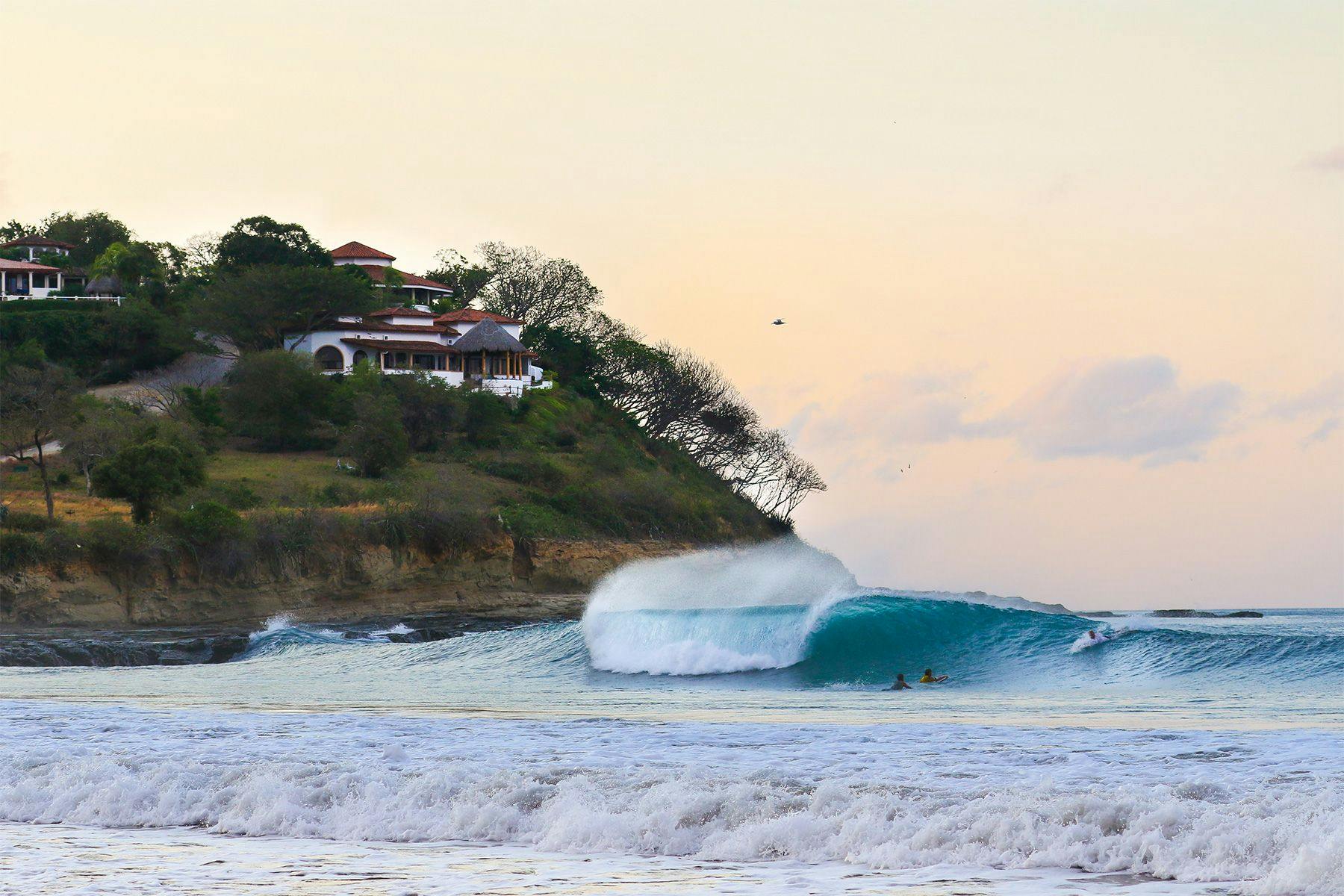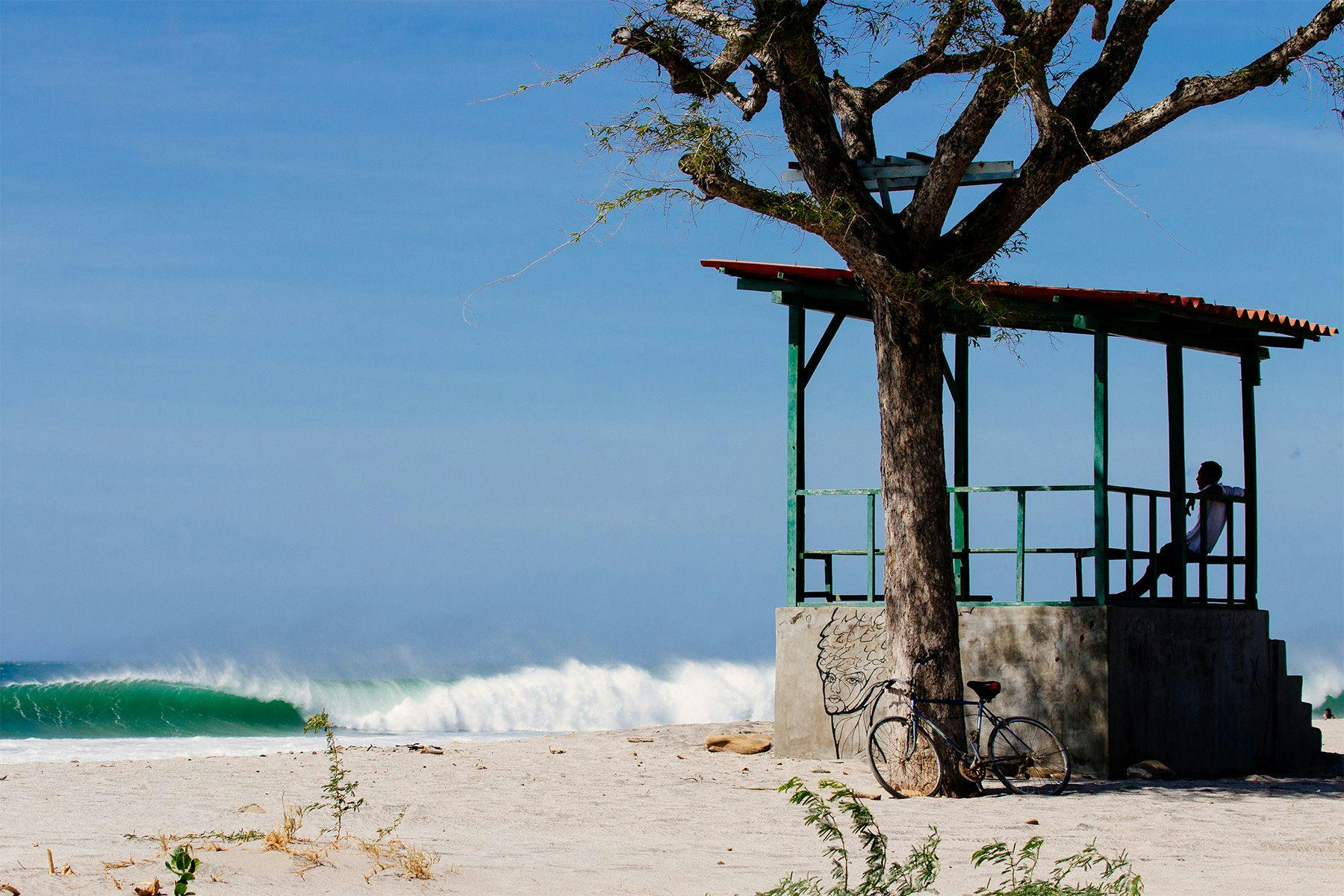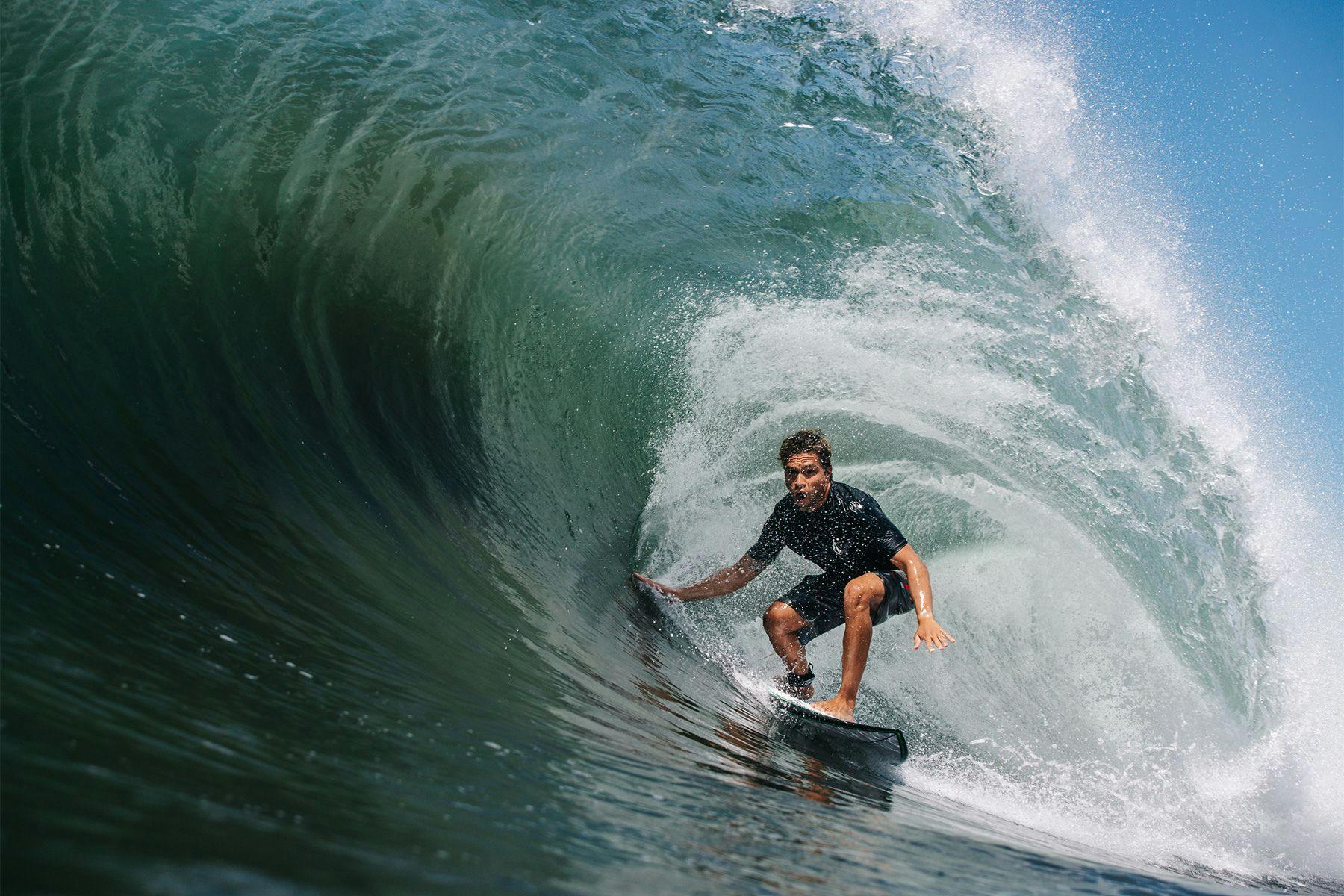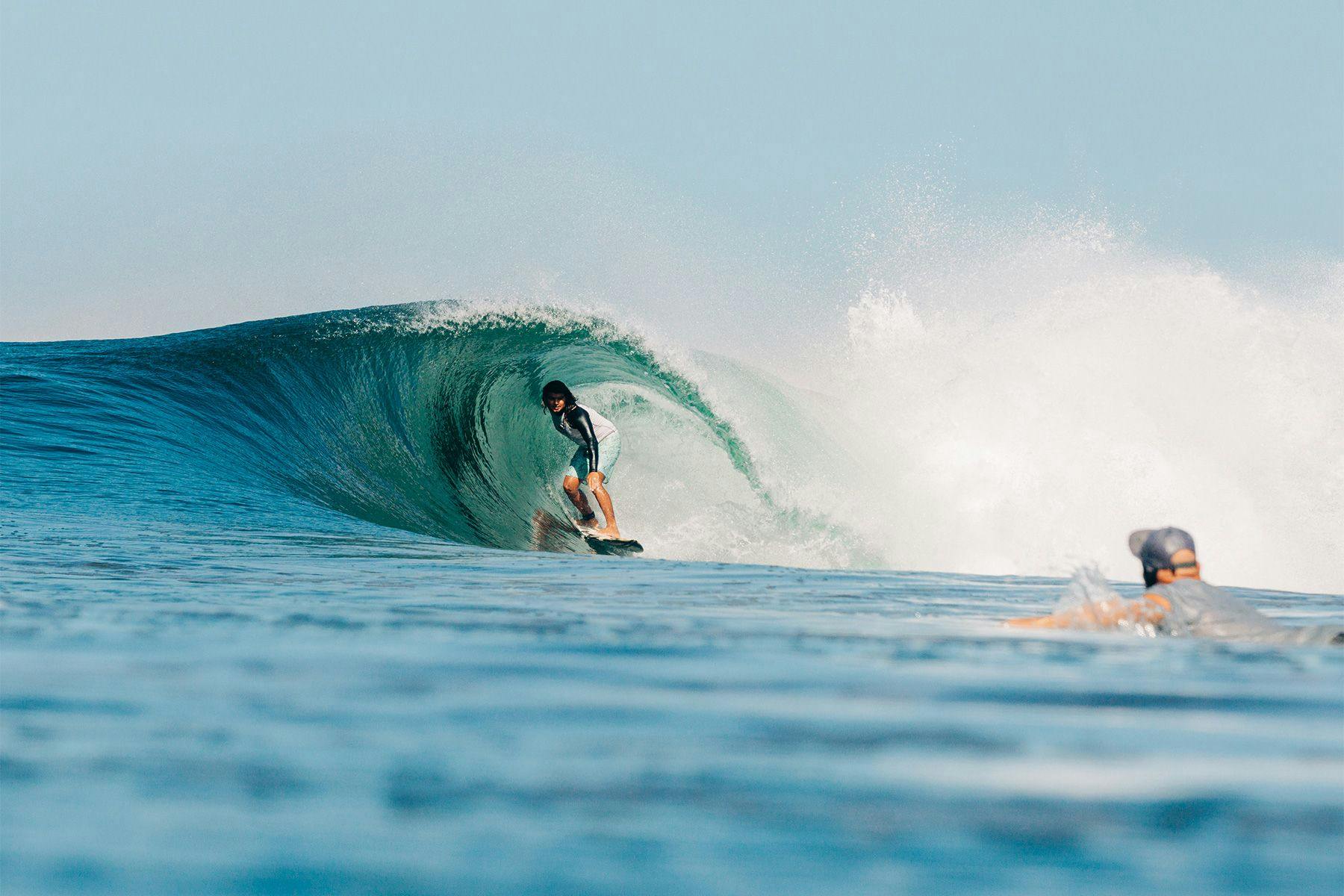Perspectives From Local Surf Tourism Workers in Nicaragua
The current surfing boom creates a conundrum: more people in the water leads to crowded breaks, which leads to increasing demand for waves, which leads to surfers travelling across the globe to find new uncrowded surf spots, which leads to the development of a local surf tourism industry to capitalise on the “wave value” in the region generated by said surf spot. That same industry is then in a position to either help the land and its people – by way of sustainable ecotourism – or hinder local communities and their resources – by way of profit-driven developments. Such is often the case in developing countries with world-class waves and low costs of living. Such is the case in Nicaragua.

A study published this February looked at how a spike in the number of foreign surfers staying on permanently and starting businesses has sparked socio-political tensions around land tenure, housing costs, and access to natural resources, as well as impacted the career prospects and perspectives of locals.
Led by Michelle Mielly and Amanda Peticca Harris, Associate Professors at the Grenoble École de Management in France, the research explored the internal career motives of 22 surf tourism workers (18 Nicaraguans and 5 permanent immigrants) based in the region of San Juan del Sur, a fishing village turned surf tourism hotspot in southwestern Nicaragua.
Drawing on Schein’s career anchor theory, the authors asked participants to reflect on (1) the emergence and implications of surf tourism in the region; (2) their interest/role in surf work; (3) their motivations to work in tourism and (4) their own career trajectory, with the aim to shed light on the Whys and Hows behind their choice to make a living out of surfing.

Under his career anchor theory, Schein describes a career anchor as “… one element in our self-concept that we will not give up, even when forced to make a difficult decision,” and suggests that there are eight types of career anchors that drive individuals’ decisions:
- Security and stability – the desire for security of employment, fair pay and benefits;
- Autonomy and independence – the desire for freedom to pursue individual career interests that is free of constraints;
- Technical/functional competence – the desire for enhanced technical competence and credibility;
- Managerial competence – the desire for managerial responsibilities;
- Entrepreneurial creativity – the desire to create and develop new products and services;
- Service and dedication to a cause – the desire to engage in activities that improves the world in some ways;
- Pure challenge – the desire to overcome major obstacles and solve almost unsolvable problems; and
- Lifestyle – the desire to integrate personal and career needs.
A thematic analysis of the interviews pointed to three dominant career anchors: Entrepreneurial creativity (6 participants), Security and stability (5 participants) and Lifestyle (3 participants). Three supporting anchors – which happened to be the same as the dominant ones, only with different numbers of representativeness – were also identified: Lifestyle (13), Security and stability (4 participants), and Entrepreneurial creativity (2 participants). Technical competence came up as the supporting anchor for 5 participants, but only appeared as the dominant anchor for one participant. Autonomy and independence and Pure challenge also showed as the dominant anchor for one participant, yet were not represented as supporting anchors. Service and dedication to a cause was the secondary anchor of one participant. As was Managerial competence, although no participants considered it as their dominant anchor.

Lifestyle
According to the authors, that many participants had Lifestyle as a career anchor wasn’t surprising, what with many being avid surfers seeking careers that reflected their passion and values. Indeed, many left stable jobs to get closer to surfing and found that embracing the ethos and being part of a surf community provided them with a sense of purpose.
“I chose to work as a surf instructor because I like it and other jobs are just for the money, this is my profession and I love surfing. I could go back to construction work when I want money, but I am being paid for my passion, surfing is what I love and teaching it, I have chosen what I want … I do not care about the money but about being happy and doing what I love.”
– Danny

Security and stability
The fact that Security and stability was a dominant anchor for many participants shows that whilst their love of surfing was important, so was earning a living wage. With that in mind, positions such as surf instruction not only provided a way to earn more whilst working fewer hours but also allowed for the development of multiple means of income.
“You know when I was a construction worker in San Juan, it took me 1 week in construction, that’s 1,000 Cordobas [30 USD], to earn what I can get in 2 days for surf instruction, you know? And I do not only do instruction, I can do board repairs, and I can get 20 or 30 dollars for repairing a tourist’s board, and they can give me a tip if I’ve worked hard and if they’re happy. Not everyone understands how to make tourists happy and keep them safe … if you’re serious, and professional, you can make tips. You can earn so much more in this job.”
– Jose

Entrepreneurial creativity
Under Entrepreneurial creativity, the authors emphasise an interconnection between the Lifestyle and Security and stability anchors, with entrepreneurs exhibiting satisfaction with the lifestyle as well as concerns for a steady source of income. This was illustrated by the way many participants voiced a wish to connect their passion for surfing to more structured forms of surf tourism, acknowledging the importance of demand and support from tourists. The authors also noted the “ancillary opportunities” (e.g. surf motorcycle rental and surf photography) that evolved simultaneously with other entrepreneurial efforts directly related to the practice of surfing. These activities stimulated workers to be creative in offering an innovative service to tourists whilst being mindful of the cost of the use of their resources and materials.
“Customers have to decide at first if they want a package starting the first day … they are shown a complete portfolio with details, all the descriptions included in their surf package. Everything they need to know for them to say okay, I want those pictures, or to say no, I do not want pictures. It’s important to make sure I sell for money without wearing out my equipment because you know, the camera is like the engine of a vehicle, when you make a click it’s as if you were driving 1 kilometer in a car, it has a lifespan … So, in that way, I make sure that I get to sell the packages without wearing out my equipment.”
– Lorenzo

Technical-functional competence
All five participants who aligned with the Technical-functional competence anchor were surf instructors. They made use of their knowledge of the ocean to enhance safety standards, thus professionalising their services and setting themselves apart in the increasingly competitive local market. And although focusing on safety sometimes meant turning customers down, it was necessary in order to keep the beaches free of accidents and the region’s reputation as a surf tourism hotspot so that travellers continue to take surf lessons.
“There’s a rule, I have to have signs by my shop I am a surfing school, I have to explain dangers, and move away if it’s crowded. We do not want to take your money; we want you to be safe. Get a lesson because instructors know what they can move and explain about other stuff … To be very safe, this is my goal here in our little school. I say I do not want to sell quantity. I want to sell like a professional, you know? Our customers know we are trying to do our best. If we do not take them surfing, it’s because I want them to be safe.”
– Javier

The findings of this study bring us closer to understanding the diverse motivations behind surf tourism workers, particularly those in emerging economies in the Global South, where opportunities and resources are often inversely proportional to the urge to exploit them. Such insights not only benefit managers, business owners, and other economic actors in the industry, but also contribute to discussions of sustainability, sustainable development goals and decolonial perspectives within the context of surfing.
But perhaps more importantly, the findings also point to a potential solution to the conundrum; a solution that revolves around waves, yet is not only about the waves. “The surf workers in our sample were driven by a passion far exceeding traditional ‘job satisfaction’,” the researchers write. “They rather typified a “career with a heart” ideal with key components including first, alignment with one’s own values, second, the generation of strong positive emotions, and a third, a fit with deeper life goals beyond work.”
**********
The author and Surf Simply would like to thank Michelle Mielly for her assistance with the article, and photographer Callum Morse for sharing his images.
